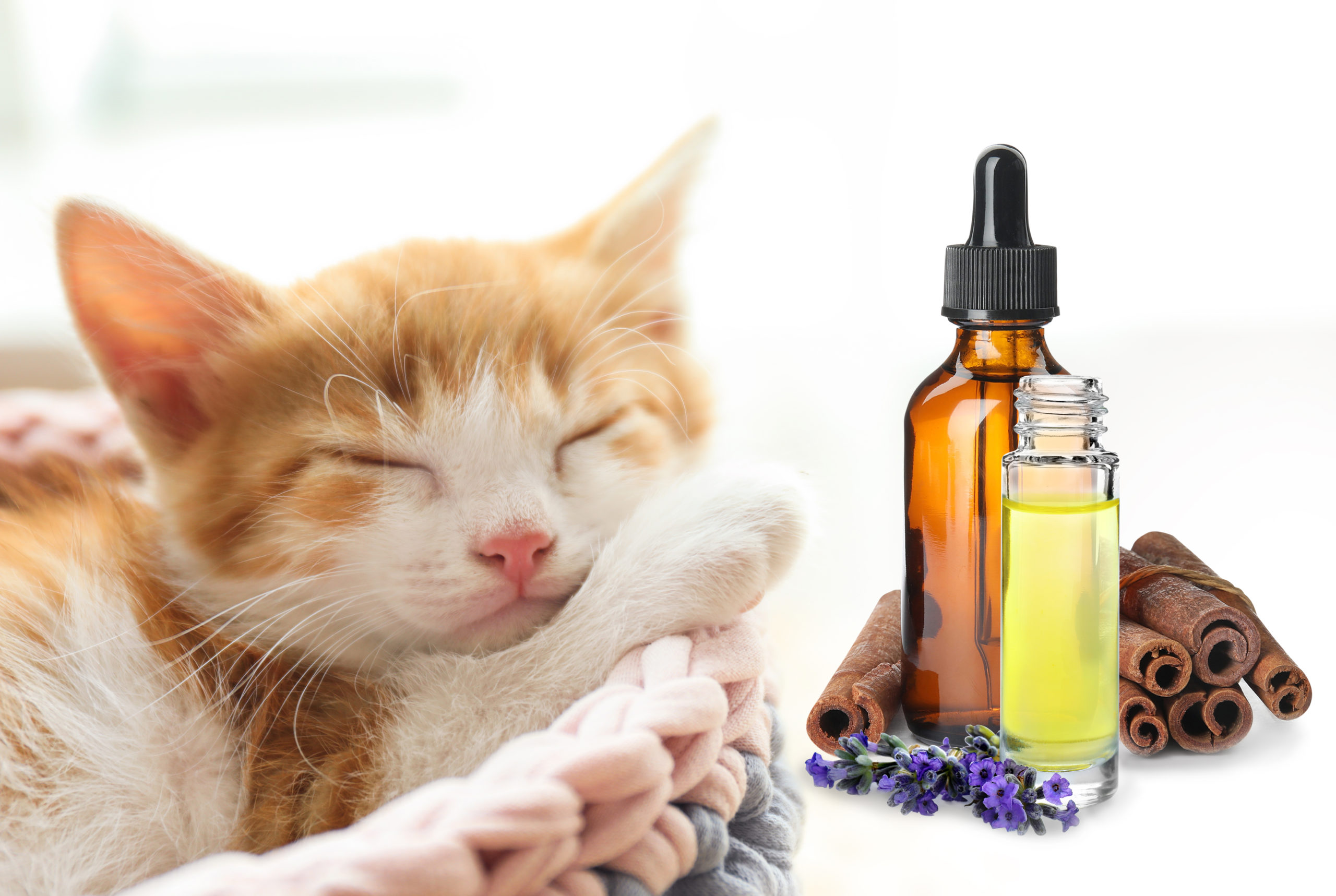Essential oils have become very popular as a way to incorporate a more holistic approach to health. Whether applied topically or added to a diffuser, many Americans are using oils to promote health and relaxation. What about our pets and essential oils? Will they reap the same benefits? Reviews are mixed. Some veterinarians are prescribing oils for their patients with very specific instructions while others are cautioning against the use of oils.
Toxicity
There are many oils which are toxic to animals. Because oils are concentrated formulas, they are incredibly potent. Animals can be adversely affected by certain oils, either by topical contact, ingestion or even breathing in the air droplets that contain oil.
If you use an oil diffuser at home, take into consideration that a dog’s sense of smell is much stronger than yours. It is best to keep pets out of a room that has strong scents and wait for the room to air out before letting pets enter.
It is also important to ensure that your diff user and oils are out of reach of all pets. If your pet knocked over the diffuser or the bottle of oil, they may ingest it or get it on their paws and cause substantial illness. Oils that are poisonous to dogs include cinnamon, citrus, tea tree, peppermint, ylang ylang, pine, sweet birch, wintergreen and pennyroyal. All of the same oils are also poisonous to cats, along with clove and eucalyptus.
Symptoms
Symptoms of oil poisoning vary but can include unsteadiness, low body temperature, low heart rate, difficulty breathing, redness of the lips, gums, or skin, watery nose or
eyes and potentially vomiting. If you suspect your pet may have oil poisoning, call ASPCA Animal Poison Control Center (APCC) at (888) 426-4435 or the Pet Poison Hotline at (855) 764-7661. These resources charge a fee but will give immediate instructions on what to do with the type of potential poisoning. You can also contact your veterinarian, which may have an after hours number, or take your pet to an after hours clinic if your vet is closed. The Pet Poison Hotline does not recommend inducing vomiting due to the risk of aspiration but they do recommend immediate veterinary care.
The ASPCA Animal Poison Control Center (APCC) recommends not using essential oils in homes that have pet birds as they are more prone to respiratory ailments, which can be exacerbated by essential oils. If you have kittens and puppies, elderly cats and dogs, and pets with a history of respiratory or liver problems, it is recommended that you do not use oils in your home.
Benefits
Research is ongoing about the potential benefits of essential oils for pets. Some holistic veterinarians use oils in their practice for flea and tick prevention, skin irritation and other conditions. Ensure your vet is well versed in the safety and efficacy of the oils they are prescribing.
Using essential oils in our homes for human purposes may put some of our pets at risk. Accidental ingestion, contact or inhalation may cause pet distress. Natural does not always equal safe. However, there are some practitioners who recommend certain oils for pet use. If oils are the best treatment option for your pet, discuss specifics with your veterinarian and follow instructions carefully to ensure your pet’s safety and wellbeing.
Related Articles
Is Your Dog Safe Around Saltwater?

